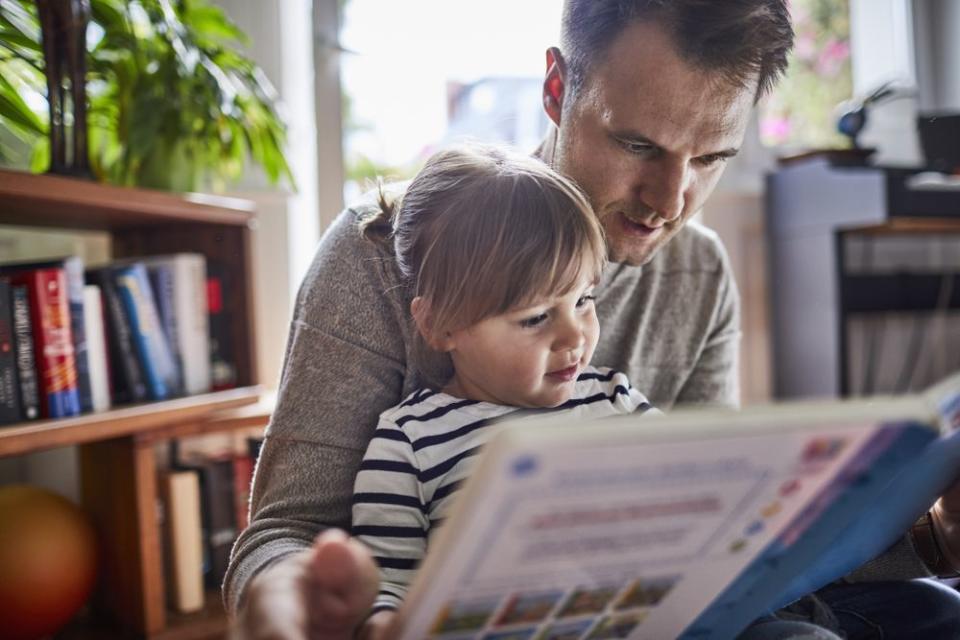Children Have Sharper Vocabulary Skills by Age 3 When Parents Read with Them Early on: Study

Good news for parents who read with their infant- and toddler-aged children: It’s making a big difference.
In a study published last month in The Journal of Pediatrics, researchers out of Rutgers University reported that reading with children as early as age 1 could make a positive impact on their array of vocabulary words by age 3.
Even more so, children “with sensitizing alleles on the dopamine receptor 2 and serotonin transporter genes” — a.k.a., genetic variants that could affect their learning ability — “fared [just] as well” on a vocabulary-comprehension test at age 3 “as children without these alleles when shared reading occurred.”
“We found that reading with very young children can be quite powerful and really makes a difference in a child’s development, particularly with children who may be vulnerable to developmental delays,” lead study author Manuel Jimenez, a pediatrician and assistant professor, told Rutgers.
Never miss a story — sign up for PEOPLE’s free daily newsletter to stay up-to-date on the best of what PEOPLE has to offer, from juicy celebrity news to compelling human interest stories.

RELATED: New Study Shows Sesame Street Viewership Can Lead to Kids’ Success in School and Work
The study looked at 1,772 children — 31 percent of them with mom-reported daily reading — and saw that regularly reading to them as early as age 1 “was strongly associated with child Peabody Picture Vocabulary Test scores.”
“Biological measures give us another way to identify children for which interventions, in this case reading, may have the greatest benefit,” pediatrician and professor Daniel Notterman told Rutgers.
“Although there is already evidence of the positive effects of shared reading, this study provides additional verification and a more quantitative picture of the link between a child’s environment, biological makeup and development,” he added.

RELATED VIDEO: Watch Jimmy Fallon Read from His New Children’s Book (Adorable Animal Noises Included!)
Similarly, studies in the past have found links between parent-toddler interaction and reading print books together as opposed to e-books, less negative behavior associated with shared reading, and more.
“The bottom line is that children respond positively to shared reading at an early age and doing so is one way to improve language skills for all children,” Jimenez told Rutgers of the November study.
“In a supportive environment, children who may be genetically at-risk, do just as well as their peers,” he added.

